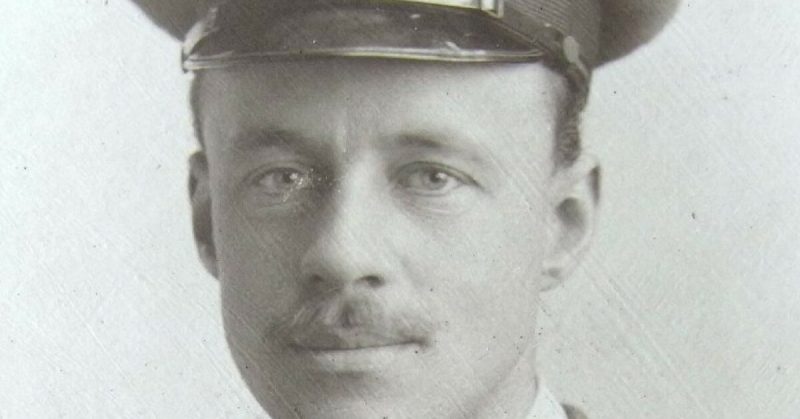It seems that fishermen enjoy vying with one another regarding the fish they caught, or not. The “fishy” stories get more outlandish regarding the size of the ‘one that got away’ as the story-telling progresses.
One would imagine, though, that John Hirst – an amateur fisherman of some note – would not have had to indulge in such story-telling, for the stories of his catches would have outdone all the others!
John Henry Hirst, a private during WWI, was stationed in Ypres. He also happened to be a talented amateur angler. He was so passionate about angling that he used to wander about the dams, in spite of the danger, indulging in his favorite sport.
He was so keen on angling that he used to make his own rod – and invented one of a particular spider-web like design.
It was not long before his superiors noted his passion, for after going off to fish in the nearby rivers, dams, ponds, canals and lakes, he inevitably came back to base with some or other delectable item of food which he had caught.
In time, as food on the front became in short supply, and the rations which the men received left much to be desired, he was frequently released from his fighting duties and sent off to catch whatever he could, to supplement the rations of his comrades.
John evidently managed to catch a good supply of trout, eel, and bream, but it could not always have been a pleasant task, for, out on the lakes and with no cover, he often came under sniper fire and frequently had to duck while shells exploded overhead.
However, this Yorkshireman, with true British Grit and being the intrepid and passionate angler that he was, luckily avoided being injured and managed always to return to base with his catch.
John had evidently taken to angling at an early age, for there are snapshots of him as a little boy, holding his angling rod – and it seems that he continued throughout his life with a passion for the sport.
He became very interested in competition angling and throughout his life added to what became a sizeable collection of medals and cups testifying to his expertise, having won innumerable competitions.
He was convinced that the further out from the bank one could reach, the better were the chances of catching the best fish, so besides being remembered for being an outstanding angler, he was also remembered for his use of the John Hirst spider rod.
His ‘invention,’ was created by him for the sole purpose of allowing him to be able to fish further away from the banks than his opponents could. So convinced was he of its usefulness and uniqueness, that some years after the war, he patented this particular design of rod.
The rod he had designed and created had a series of spikes and lines protruding from the actual shaft of the rod, using crane-style mechanics, in order to support its extra length.
This made it look somewhat like a spider’s web, and while he made the attempt to market these unusual-looking rods, he did not enjoy much success. However, when using this rod, as he did when engaged in competitions, he was viewed as being practically unbeatable.
John Henry Hirst died in 1963 at the age of 75 years, and his 17ft spider-like rod was stashed in his daughter’s attic.
There it remained forgotten, as too were the two stuffed carp that John had caught in a pond while serving on the front during WWI. He had sent them back to England to be stuffed and mounted in a case.
These items remained hidden away in the attic until recently when they finally saw the light of day and were put on sale at the Antiques Roadshow.
The rod was valued at £5 000, and was bought by a collector, Victor Bonutto, who set about researching the history of John Hirsh and his rod, Mirror reported.
So – it seems that this “fishy” story is by far the best one and has even been verified by the entry recorded from the war front, in John Hirst’s diary of 1915, which reads…..
“The fish I caught were much appreciated by the officers and men of B Company. In fact, I was excused all other duties so that I could provide fish.”
